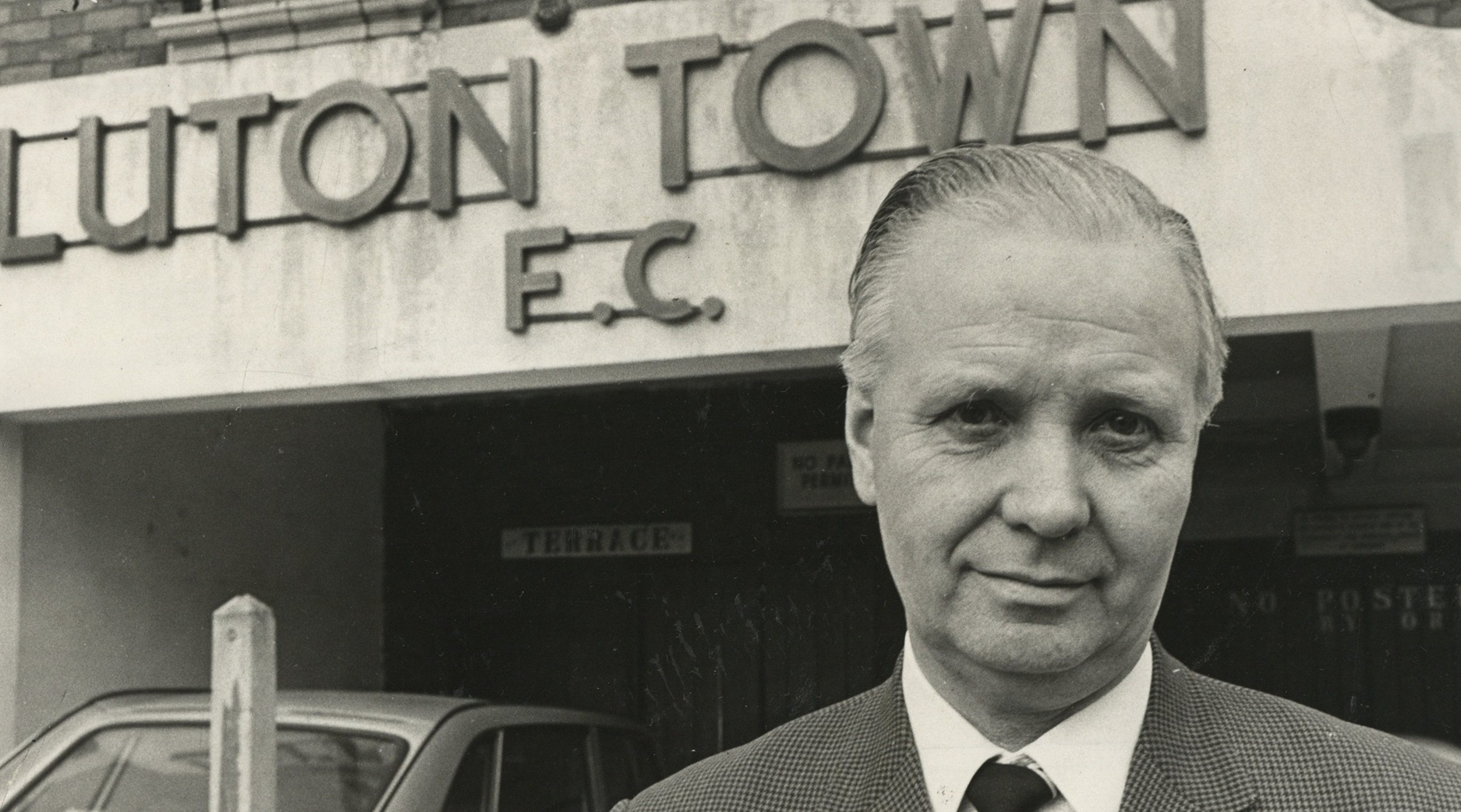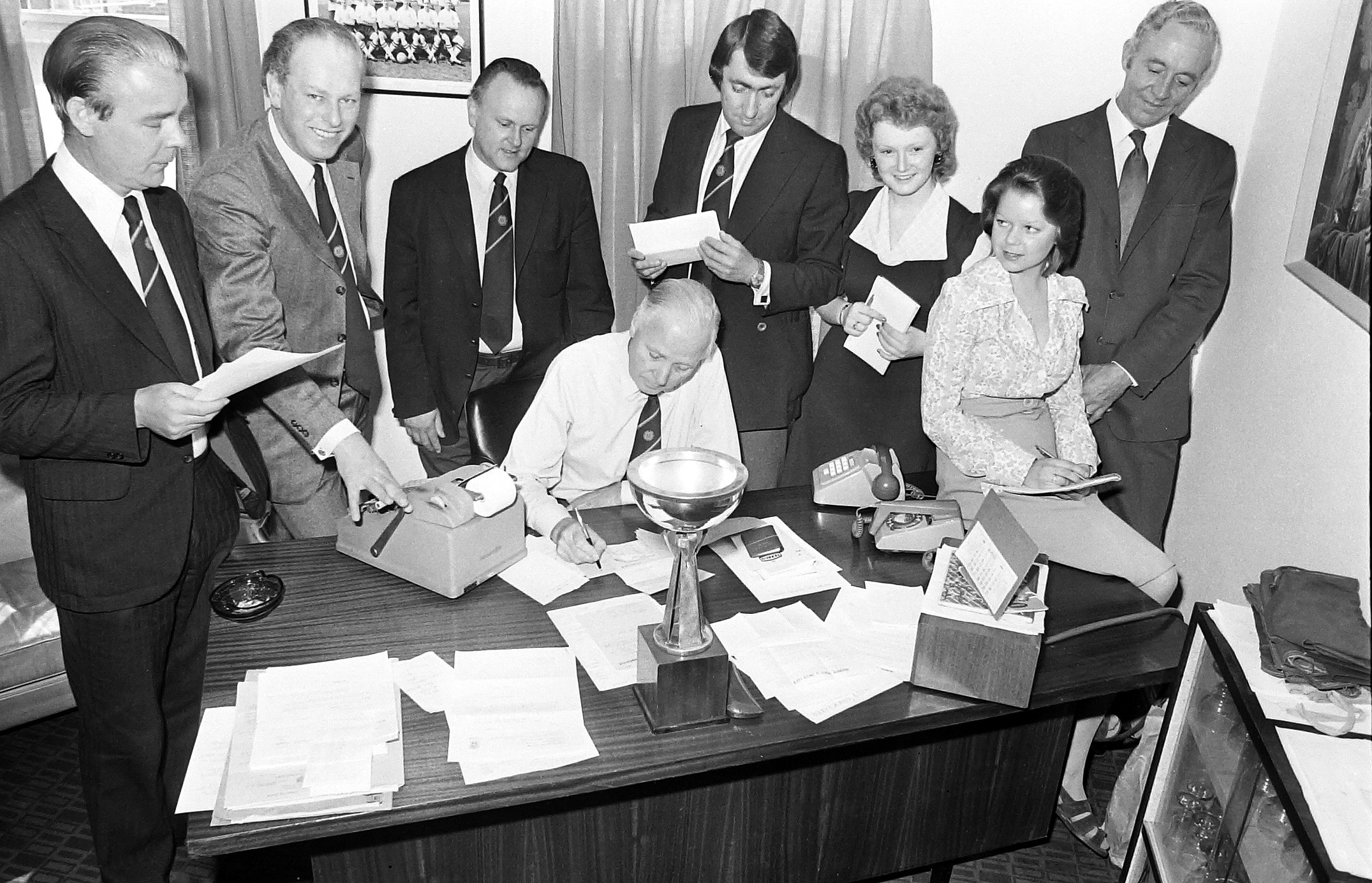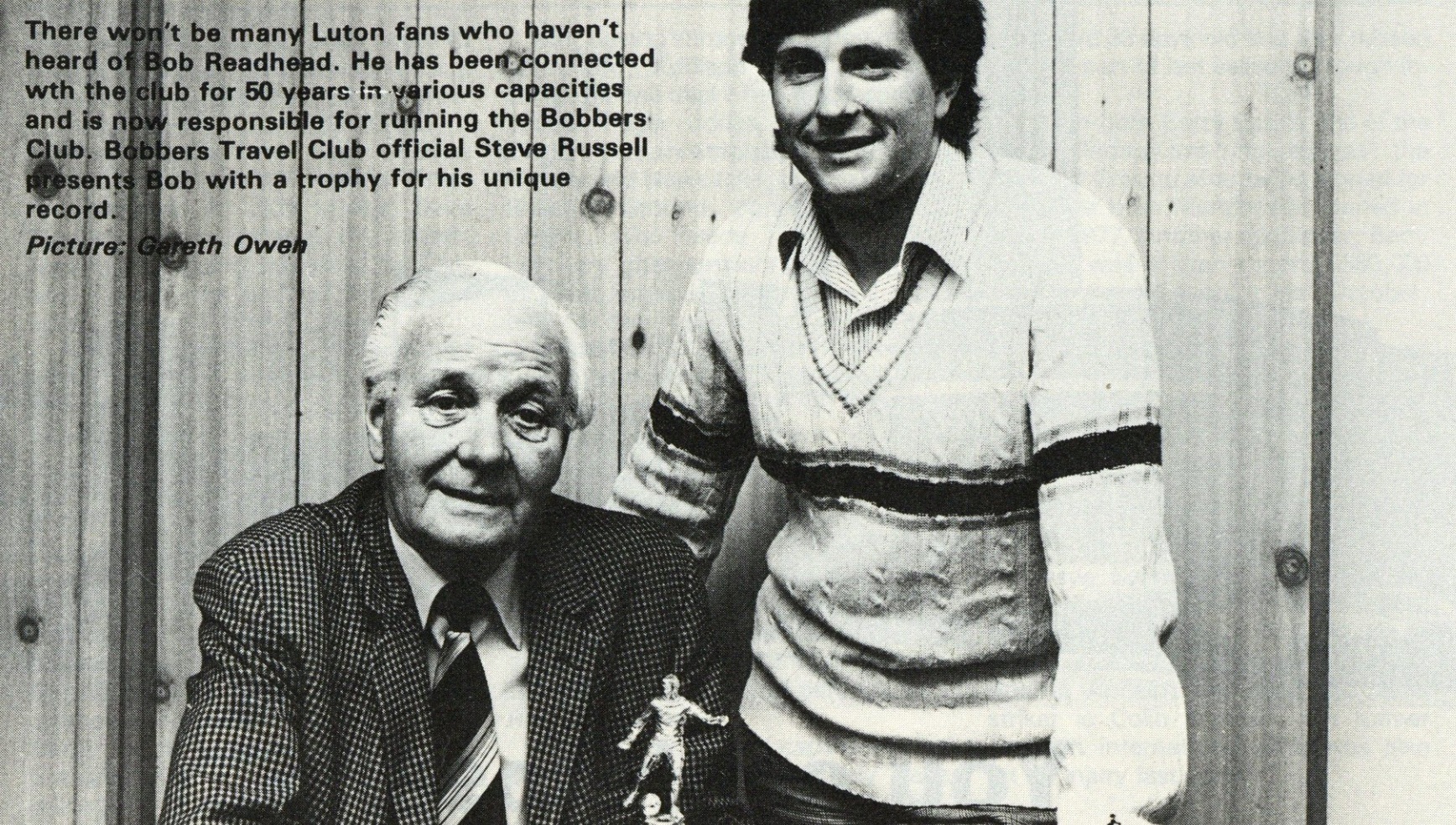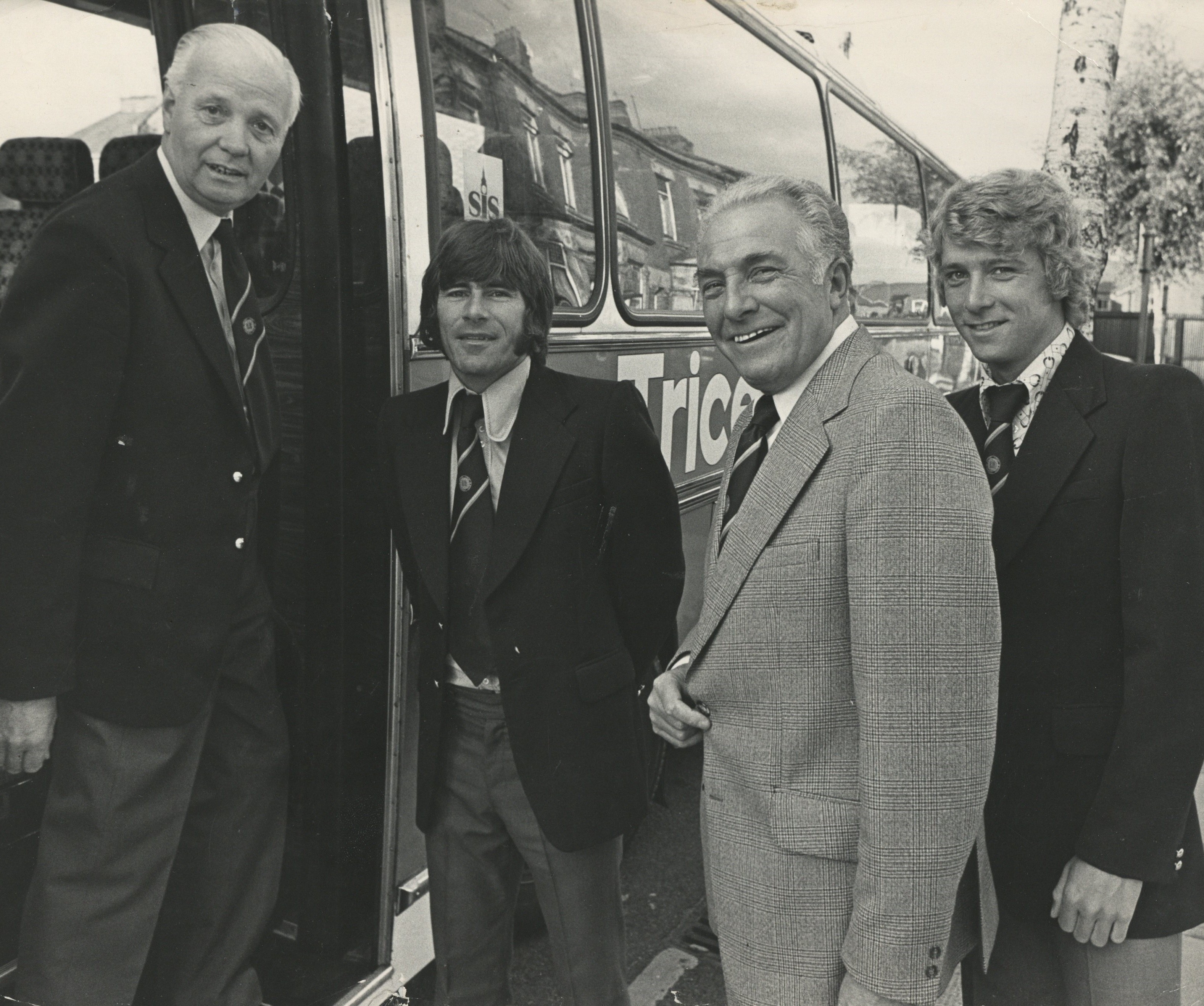bob readhead - from ball boy to club secretary

Not many people are fortunate enough to find a job they’d
also class as a hobby. Bob Readhead, a Luton Town supporter who served many
roles with the club in his life, was one of the lucky ones.
He was born in October 1917 into a family of Straw Hat
manufacturers and grew up on Lyndhurst Road, not far from the football ground
and club that would form such a significant part of his life. He first served
as a ballboy and then joined in the early 1930s on a part-time basis after
serving as secretary of the Luton Sundale Club, which had produced many strong
local players.
By 1938 he was working as assistant to ‘A’ team manager, and
future Town boss, George Martin, a role he would return to after serving in
World War Two, this time with Hubert Day, before taking over the reigns himself
after Day’s promotion to Chief Scout.
His move into the administrative side of the club came in
1959 when he was appointed as Assistant Secretary to Phil Coley. An unenviable
early responsibility was to help with the allocation of FA Cup Final tickets, a
task which led fans to still reproach Bob over 30 years later for his failure
to provide them with a ticket!
Upon Coley’s emigration to New Zealand in 1963 Readhead was
first made acting secretary before being appointed fully in 1964. These were
generally not happy times for the club as the descent through the leagues
continued, though Bob managed to sidestep the various boardroom turmoil over
the years.
Below: Bob Readhead (seated) with members of the administrative staff.

It was he who, noting Eric Morecambe looking for a seat in
the Main Stand, invited the comedian to sit in the director’s box, a shrewd
move that would eventually see Morecambe become a director and vice-president
of the club.
A major part of the secretary role involved the finalising
of transfers. In the pre-internet and fax era, and with posting the documents
leaving too much to chance, this would often mean a frantic Thursday dash to
Lytham St. Annes to hand deliver the paperwork so the player would be ready for
that Saturday’s game.
Sometimes a transfer would require even more urgency. Such
as in March 1972, when a deal for John Faulkner was set into action shortly
before the deadline, the club having sold Chris Nicholl to Aston Villa and in
need of a replacement.
In foggy conditions, he accompanied Harry Haslam from Luton
to Leeds. ‘Harry won’t mind me saying it, but he’s got a very heavy pair of
shoes when it comes to touching the accelator pedal,’ he would recall in later
life, ‘we left Harry’s house at 10.45pm that night and walked into the Queen’s
Hotel in Leeds exactly two hours ten minutes later. It was foggy, really patchy,
but I’ll say this for Harry, he’s a really good driver.’
Often the journey would take him even further afield, as was
the case when a trip to Australia was required to sign striker Adrian Alston in
1974, a distance likely to have been the furthest travelled to complete a
single transfer at the time.
By then Town were preparing to return to the 1st
Division, meaning Bob had been in the Secretary’s office all the way down the
leagues and back again, another first for the time. Sadly the end of that
season brought both a relegation and the news that at just 57, the club had
decided it was time for Readhead to retire, a decision he vehemently disagreed
with, briefly threatening legal action. He was replaced by Doug Lygo, the
club’s Chief Accountant.
Bob remained stoic, ‘I don’t feel bitter. I’m a
philosophical man. They’ve given me two free seats for matches, and I will
continue to support Luton Town.’
He was also well aware of his reputation as someone who had
made both friends and enemies in the game, telling Brian Swain in 1975, ‘you
must do some things people don’t like. You always try to do your best, but you
can’t please everyone.’
The early retirement gave him a chance to improve his golf -
he played off a handicap of 20 – and he became a voluntary secretary and
treasurer of the Bobbers Club, ready to do anything from clearing the bar to
keeping the books, remarkable for a man who could have so easily held a grudge.
He was in attendance for the 1988 Littlewoods Cup Final, and
prouder still to attend in his 1959 FA Cup Final blazer. ‘We were kitted out at
Charles Mares, and I think the blazers cost three guineas,’ he recalled at the
time, ‘I put it away in the wardrobe as a treasured possession and decided I
would only wear it when Luton went to Wembley for cup finals. And it still
fits!’
Bob passed away in 1992 survived by Marie, his wife of 51
years.
Below: Bob receives his trophy for 50 years of service.

Below: With John Ryan, Harry Haslam and Alan West.

